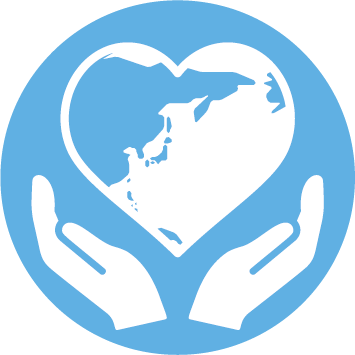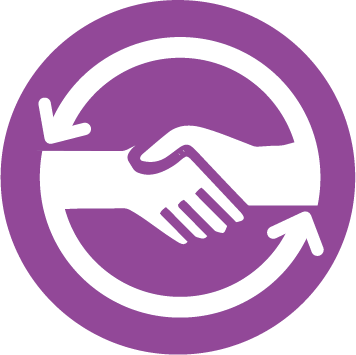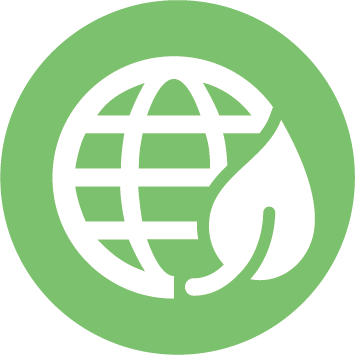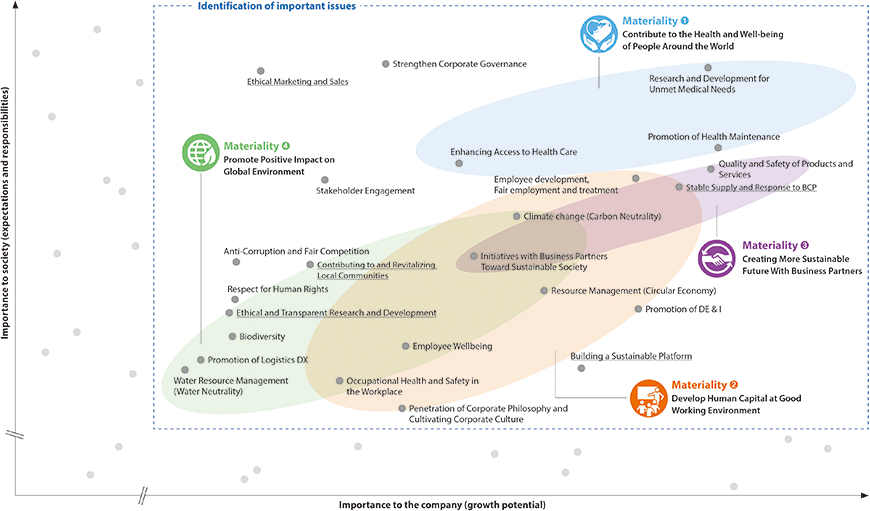The Process of Specifying Our Materiality
Materiality is the key area that the Otsuka group should prioritize. We specified it based on two axes: “importance to the society” and “importance to the company.” The former refers to external trends in the industry, which include the requirements and expectations from organizations such as ESG rating agencies and NGOs, as well as from stakeholders like investors. The latter refers to internal opinions from major operating companies, questionnaires and interviews of employees, and this is how we finally created the following map.
We re-assessed our materiality considering the changes in business environments and social situations in line with the Fourth Medium-Term Management Plan that started in June 2024. We evaluated the growth potential of our businesses, and specified strategies, measures and indicators of each materiality. We keep moving forward toward the achievement of our sustainability mission.
Materiality

- Contribute to the Health and
Well-Being of People Around the World
Social Issues
- Unmet medical needs/unrecognized health needs by consumers
- Responding to changing health values
Related SDGs

- Develop Human Capital to Fulfill Our Corporate
Philosophy at Good Working Environment
Social Issues
- Increased global competition, changes in the management competition environment due to increasing digitalization, diversification of individual values and working styles due to the limitations of a one-size-fits all organization, and increased mobility
Related SDGs

- Create More Sustainable Future
with Business Partners
Social Issues
- Destabilization such as pandemics, geopolitical risks of raw material procurement and product supply due to supply chain disruption
- Building a sustainable supply chain
Related SDGs

- Promote Positive Impact on Global Environment
Social Issues
- Increasing environmental burden on the Earth due to climate change
Related SDGs

















